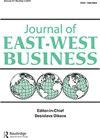灵活性与沙特员工对工作满意度的看法:一项多部门研究
IF 0.9
Q4 BUSINESS
引用次数: 0
摘要
工作满意度的影响因素(薪酬、工作环境、职业发展、灵活性和监督)各不相同。先前的研究表明,工作满意度与工作环境、总薪酬和成长机会呈正相关。然而,在沙特阿拉伯,COVID-19之后,几乎没有证据表明远程工作的工作满意度。因此,本研究的目的是分析COVID-19大流行出现后沙特员工在远程工作环境(工作空间灵活性)中的工作满意度,以确定重组COVID-19后人力资源管理实践的方法。一项在线调查(n = 1113)评估工作满意度,考虑到灵活性,对沙特员工进行了调查,并使用李克特量表测量了灵活性和远程工作政策在各个部门的影响。实证研究结果表明,员工非常重视远程工作的时间,主要是因为他们希望履行个人职责并减轻压力。有趣的是,由于两个假设的原因,灵活性在其他工作满意度因素中得分较低。员工通常会得到主管的批准,将在家工作和办公室工作结合起来;因此,他们已经得到了这种好处。本研究的结果为从业者和人力资源管理者提供了指导。人力资源管理需要适应不断变化的环境和挑战,这就需要人力资源政策的长期发展、适应和更新。本研究通过说明如何通过应用员工灵活性来改善管理组织变革,从而为人力资源方面的文献做出了贡献,这种灵活性因全球大流行而变得更加普遍。本文章由计算机程序翻译,如有差异,请以英文原文为准。
Flexibility and Saudi Employees’ Perceptions of Job Satisfaction: A Multisector Study
Abstract The influence of job satisfaction components (pay, work settings, career growth, flexibility, and supervision) varies. Previous studies have shown job satisfaction is positively correlated with work settings, total compensation, and growth opportunities. There is, however, little evidence of job satisfaction in remote working after COVID-19 in Saudi Arabia. Therefore, the aim of the present study is to analyze the job satisfaction in remote working settings (workspace flexibility) among Saudi employees after the advent of the COVID-19 pandemic to determine ways to restructure human resource management practices post COVID-19. An online survey (n = 1113) to assess job satisfaction, taking flexibility into account, was conducted among Saudi employees, and the impact of flexibility and remote working policy in various sectors was measured using a Likert scale. The empirical findings demonstrate that periods of remote work are highly valued by employees, predominantly owing to their desire to fulfill personal duties and decrease stress. Interestingly, flexibility scored low among other job satisfaction components owing to two hypothesized reasons. Employees normally receive supervisor approval to combine working from home and the office; hence, they already receive this benefit. The findings of this study provide guidelines for practitioners and HR managers. Human resource management needs to adapt to changing circumstances and challenges, which requires long-term development, adaptation, and updating of human resource policies. This study contributes to literature on human resources by illustrating how managing organizational change can be improved by applying employee flexibility, which was made more pervasive by the worldwide pandemic.
求助全文
通过发布文献求助,成功后即可免费获取论文全文。
去求助
来源期刊

Journal of East-West Business
BUSINESS-
CiteScore
2.10
自引率
26.70%
发文量
19
期刊介绍:
Journal of East-West Business is a quarterly journal that deals with contemporary and emerging aspects of business studies, strategies, development, and practice as they relate to the Russian Federation, the new republics of the Commonwealth of Independent States, and Eastern/Central Europe-and business relationships with other countries of the world. The Journal of East-West Business is international in scope and treats business issues from comparative, cross-cultural, and cross-national perspectives. The journal features an Editorial Advisory Board that represents the Russian Federation, Eastern/Central European, and Baltic states in this new business arena.
 求助内容:
求助内容: 应助结果提醒方式:
应助结果提醒方式:


